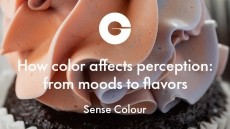EFSA group formed to evaluate Southampton study
working group to provide the European Commission and EU member
states with scientific advice on the effects of food additives on
behaviour by the end of February.
In September 2007, EFSA was asked to assess findings of the study conducted by the University of Southampton, which suggested a link between mixtures of certain food colours and the preservative sodium benzoate and hyperactivity in children.
The newly formed ad-hoc working group is made up of statisticians and experts in the field of child behaviour, as these key areas were identified as crucial for the evaluation.
It also includes toxicologists and a specialist in allegy from EFSA's additives and flavourings panel (AFC Panel) and its panel on dietetic products, nutrition and allergies (NDA).
Lastly, seven experts specialised in child behaviour and statistics, from five European countries, have now joined the working group.
The UK Food Standards Agency (FSA) that commissioned the study, has provided EFSA with the last set of additional data required for the evaluation.
An overview of other relevant studies is currently being compiled by members of the working group as well as an evaluation of the statistical analysis employed in the study.
The risk assessor had already been asked by the European Commission to assess the safety of all additives currently approved for use in the EU, starting with colours.
But this is now on hold pending review of the Southampton study.
The diversion of resources to this assessment underscores the importance that additive safety to the Commission and EFSA - as well as to to the food industry and consumers.
Although EFSA has been asked by the European Commission for its opinion on this by the end of February, it is possible that the final opinion on the study may not be ready till a few weeks after that date so experts can scrutinise the Southampton study and the wider scientific evidence base on the issue of additives and behaviour.
The Southampton study The study at the centre of the debate was conducted in two phases.
In stage one, 153 three-year-olds and 144 eight- and nine-year-olds were given one of two drink mixes containing artificial food colours and additives, or a placebo.
The children were drawn from the general population and across a range of hyperactivity and ADHD (attention deficit hyperactivity disorder) severities.
Mix A contained sunset yellow (E110), tartrazine (E102), carmoisine (E122), ponceau 4R (E124) and sodium benzoate (E211).
This same mix was used in an earlier study on a cohort of three-year-olds which was deemed inconclusive because the effects were not confirmed by clinicians.
Mix B contained sunset yellow (E110), quinoline yellow (E104), carmoisine (E122), allura red (E129) and sodium benzoate (E211).
Phase one lasted six weeks, with every child consuming the mixes and the placebo for one week each, and a one week wash-out period between each.
Parents were asked to keep other sources of artificial colours out of the diet, and to keep a diary of violations.
Phase two involved some of the children from the older group - responders and non-responders - during two half-day session a week apart, at which they were given either a placebo or an active drink similar to mix A or B, but the whole day's dose was given at once.
The effects on the children's behaviour were assessed using a global hyperactivity aggregate (GHA) based on aggregated scores of observed behaviours and ratings by teachers and parents, plus, for those aged eight and nine, a computerised test of attention.
The conclusions drawn by the researchers were that artificial food colours and additives were seen to exacerbate hyperactive behaviour in children at least up to middle childhood.













